What Is Social CRM? A Guide for Marketers, Sales, and Customer Service
 Woosper
Woosper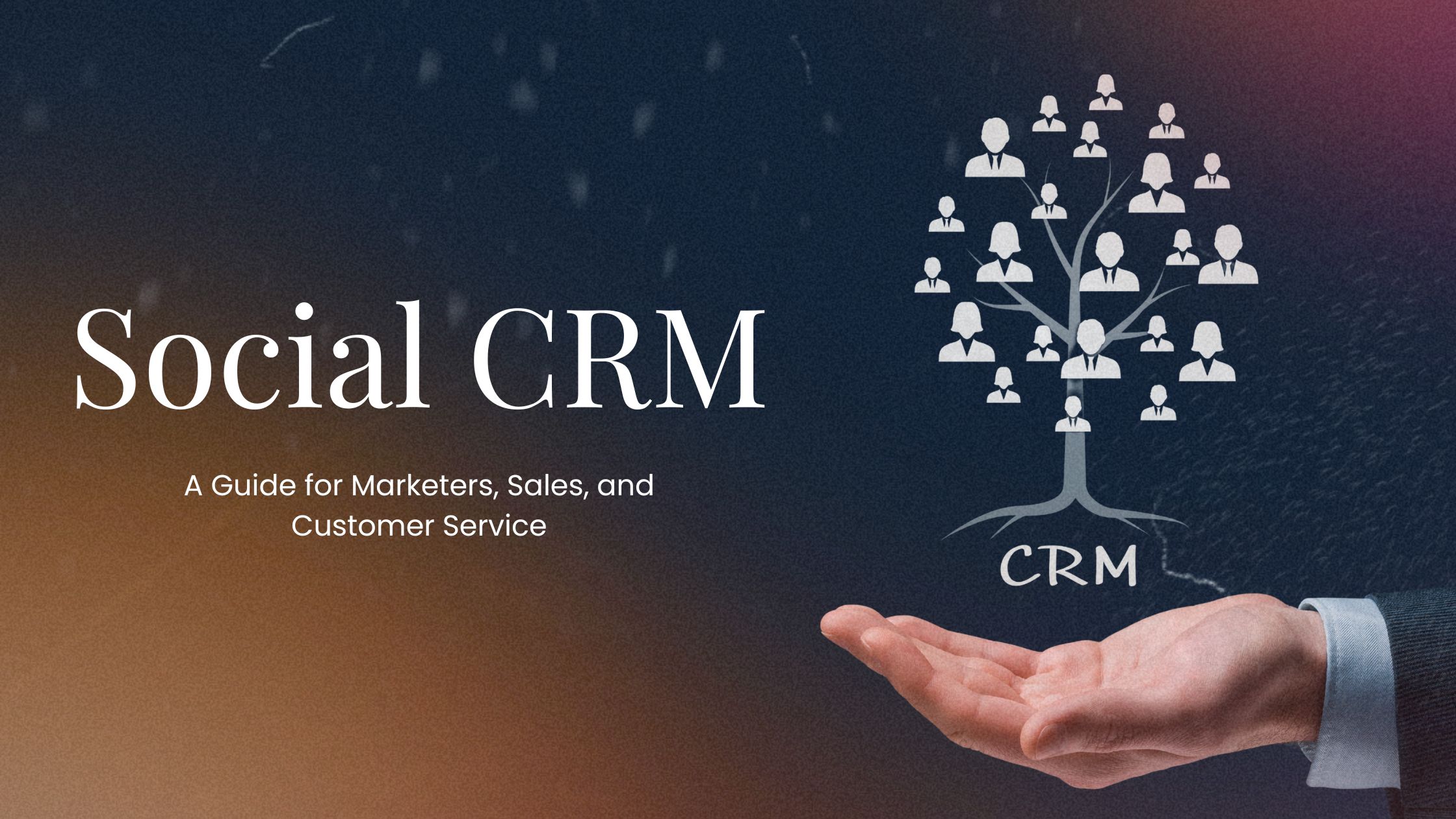
Have you ever had the impression that you are trying to reach your consumers by calling into the void? Social CRM is like a precision-guided message delivery system, ensuring your communications reach the right people with a personalized touch. It all comes down to leveraging social media to create sincere relationships, learn what your clients truly need, and provide the service that will have them returning for more.
It provides tools to improve your approach, whether you're a marketer trying to increase engagement or a sales team trying to complete transactions more quickly. Additionally, it helps a customer service department enhance their assistance. Explore this article to learn how social CRM can transform your business's customer relationships by offering valuable results.
What is Social CRM?

Social CRM is an advanced customer relationship management system integrating social media interactions with standard CRM practices. It uses social media to collect, evaluate, and make use of social data, unlike traditional CRM, which focuses on calls and emails. This method enables organizations to communicate with consumers in real-time, better understand their requirements, and increase overall engagement.
The revenue for the Customer Relationship Management Software market is forecasted to reach US$89.03 billion in 2024, according to Statista. This highlights the growing importance and adoption of CRM systems in business. It is basically a customer-centric approach that incorporates data to assist teams in understanding consumers, potential clients, and leads better. Businesses can customize offers, personalize interactions, and provide their audience with more relevant and engaging experience using this data-driven strategy.
Understanding the Components of Social CRM
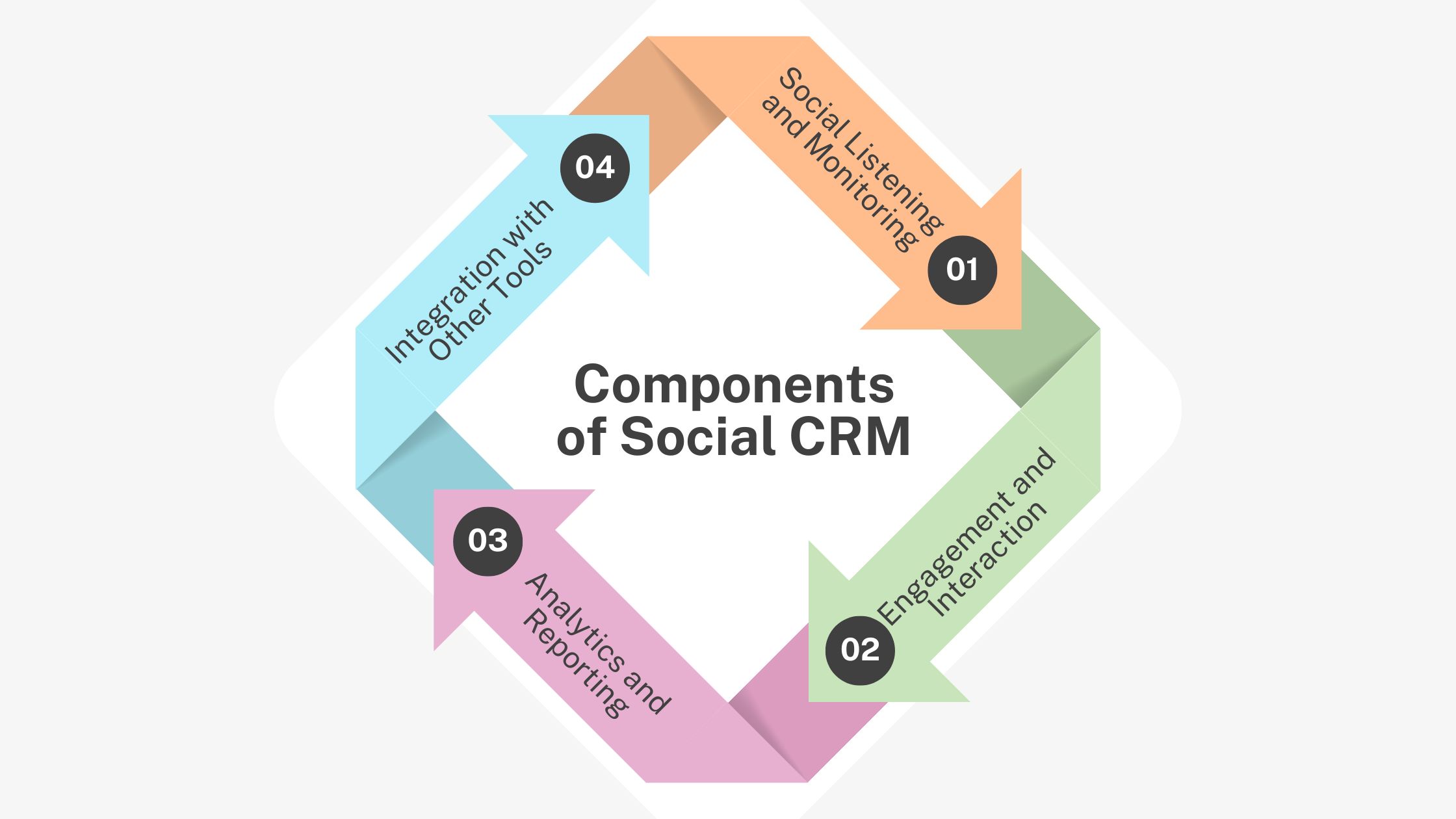
Social media interaction is only one aspect of social CRM. It's a systematic approach that depends on particular elements to deliver significant outcomes.
Let's delve into these fundamental components:
• Social Listening and Monitoring
Social listening and monitoring include keeping an eye on online discussions, evaluating sentiments, and identifying trends associated with your company, industry, or competitors. This data-driven strategy enables businesses to comprehend client demands, respond to feedback, and refine their overall strategy.
• Engagement and Interaction
In order to use social CRM effectively, significant consumer interactions need to be promoted. Businesses can do that by responding quickly to inquiries, participating in conversations, and customizing their replies. Hence, relationships are strengthened, and trust is developed by actively engaging in online communities and responding to consumer concerns.
• Analytics and Reporting
Social CRM offers complete reporting and analytics tools to help organizations evaluate the success of their social media initiatives. By evaluating engagement indicators, campaign success, and overall efficiency using detailed reports, businesses can make better decisions and shape their future planning.
• Integration with Other Tools
One major benefit of social CRM is its effortless integration with other strategic digital marketing tools. It seamlessly integrates with platforms for data analytics, email marketing, and content management to provide a cohesive approach to customer relationship management.
Benefits of Social CRM for Marketers
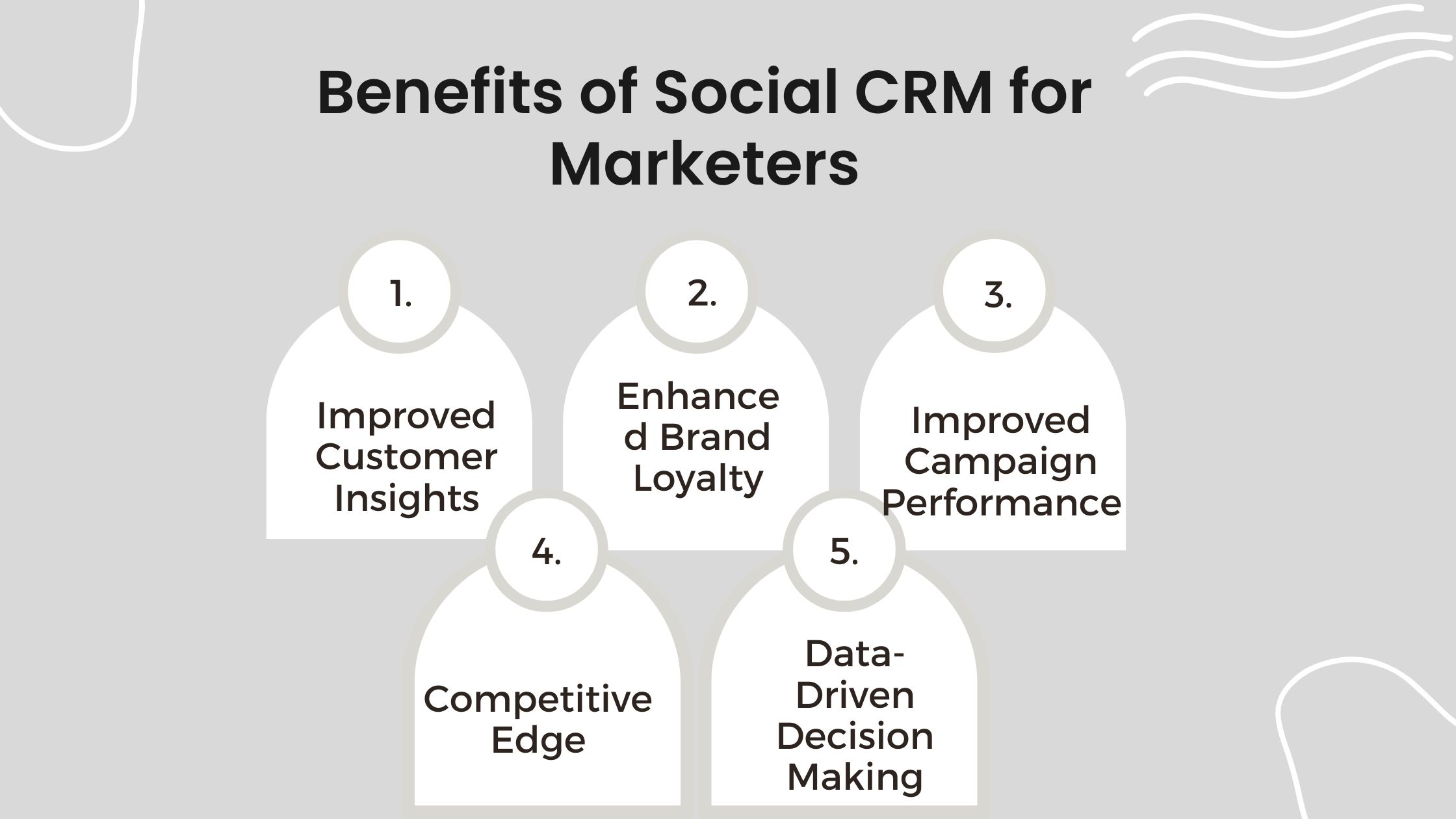
Marketers can boost brand reputation, promote customer interaction, and obtain more profound insights into their target demographic with the help of social CRM, which has several perks.
The following are some main advantages:
• Improved Customer Insights
Analyzing social media interactions gives marketers detailed information on the preferences and behavior of their target audience, allowing them to develop more focused marketing campaigns.
• Enhanced Brand Loyalty
Personalized communications and consistent interaction using social CRM assist in developing brand loyalty and converting consumers into committed supporters.
• Improved Campaign Performance
Instantaneous feedback on marketing campaigns is made possible by social CRM, which gives marketers the flexibility to modify their plans as needed to achieve better outcomes.
• Competitive Edge
Marketers can remain one step ahead of the competition and adjust more quickly to shifting market trends by actively listening to and responding to client demands.
• Data-Driven Decision Making
Social CRM offers valuable reporting and analytics tools that assist marketers in making sound decisions based on real-time social media performance information.
Collaborating with the best digital marketing company can offer organizations the expertise and tools required to fully utilize social CRM's advantages.
Benefits of Social CRM for Sales Teams
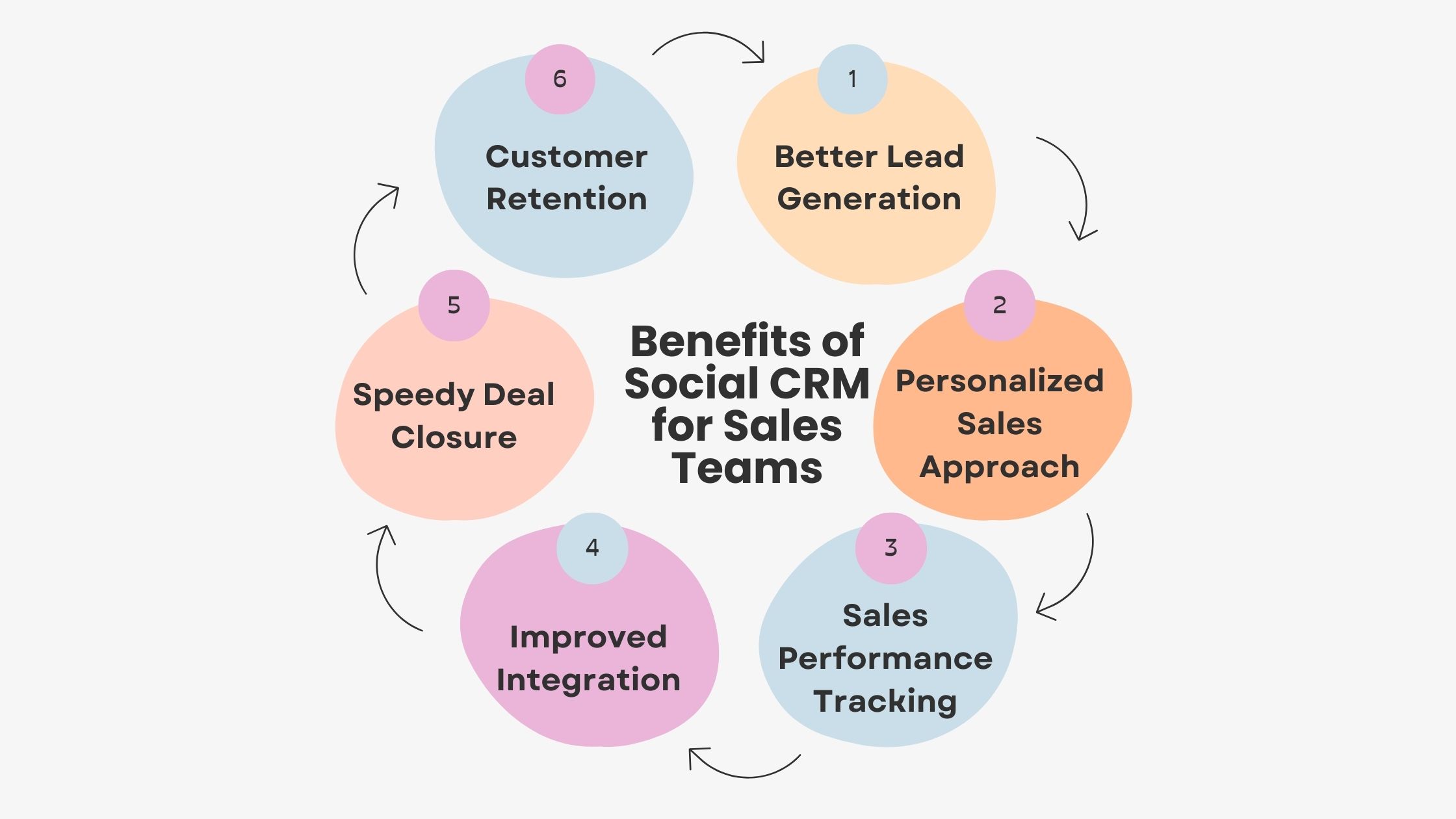
Social CRM offers sales teams numerous advantages, allowing them to forge closer bonds with current as well as potential clients. Additionally, it helps generate leads and close deals more effectively.
• Better Lead Generation
Social networking sites are a great source of possible leads. Sales teams can use them to find prospects, connect with them, and move them along the sales funnel.
• Personalized Sales Approach
Sales teams can develop more compelling and meaningful interactions by customizing their pitches to each prospect based on social CRM data.
• Sales Performance Tracking
It gives sales teams access to analytics that let them monitor their performance and gain significant insight into how well their sales tactics are working.
• Improved Integration
By coordinating social CRM data with content marketing services, sales teams can utilize relevant content to nurture prospects and successfully move them through the sales funnel.
• Speedy Deal Closure
More productive sales discussions result in faster deal closure times thanks to personalized strategies and real-time data from social CRM.
• Customer Retention
Sales teams can improve long-term connections with clients and increase repeat business by using social media to remain in touch with them.
Benefits of Social CRM for Customer Service
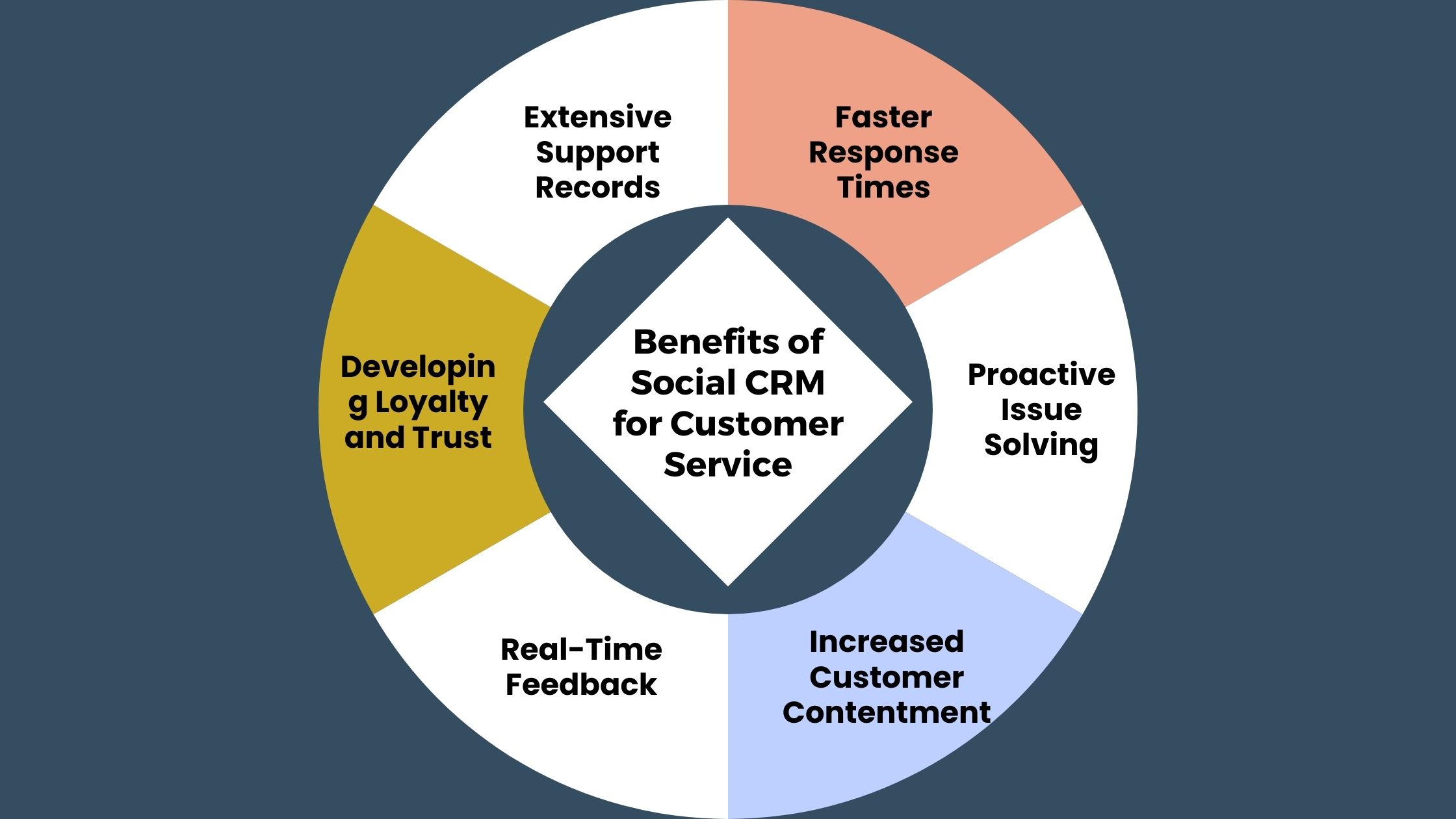
Customer service teams can profit significantly from social CRM, which makes it possible for them to improve consumer satisfaction and give exceptional assistance.
Here are a few main benefits:
• Faster Response Times
Customer service teams can track and reply to social media questions in real time by using social CRM, which speeds up response times and boosts customer satisfaction.
• Proactive Issue Solving
Teams can prevent problems from getting worse by keeping an eye on social media interactions. This allows them to see issues early on and take proactive measures to address them.
• Increased Customer Contentment
Social CRM enables more immediate and customized service, which increases satisfied clients and improves brand perception.
• Real-Time Feedback
Direct communication on social media platforms gives customer support staff instant feedback, which they may use to understand client demands better and modify their approach.
• Developing Loyalty and Trust
Long-term loyalty is developed via regularly interacting with consumers on social media and listening to their concerns.
• Extensive Support Records
It maintains a log of every communication, allowing customer support staff to follow up on previous issues and effectively offer consistent support.
Customer care teams can leverage social CRM to provide exceptional assistance by using insights from social media marketing specialists.
Best Social CRM Tools to Utilize to Enhance Your Business
Selecting the ideal social CRM software can drastically boost your company's capacity to interact with clients, forge bonds, and encourage expansion.
Here are a few of the best choices:
1. Salesforce
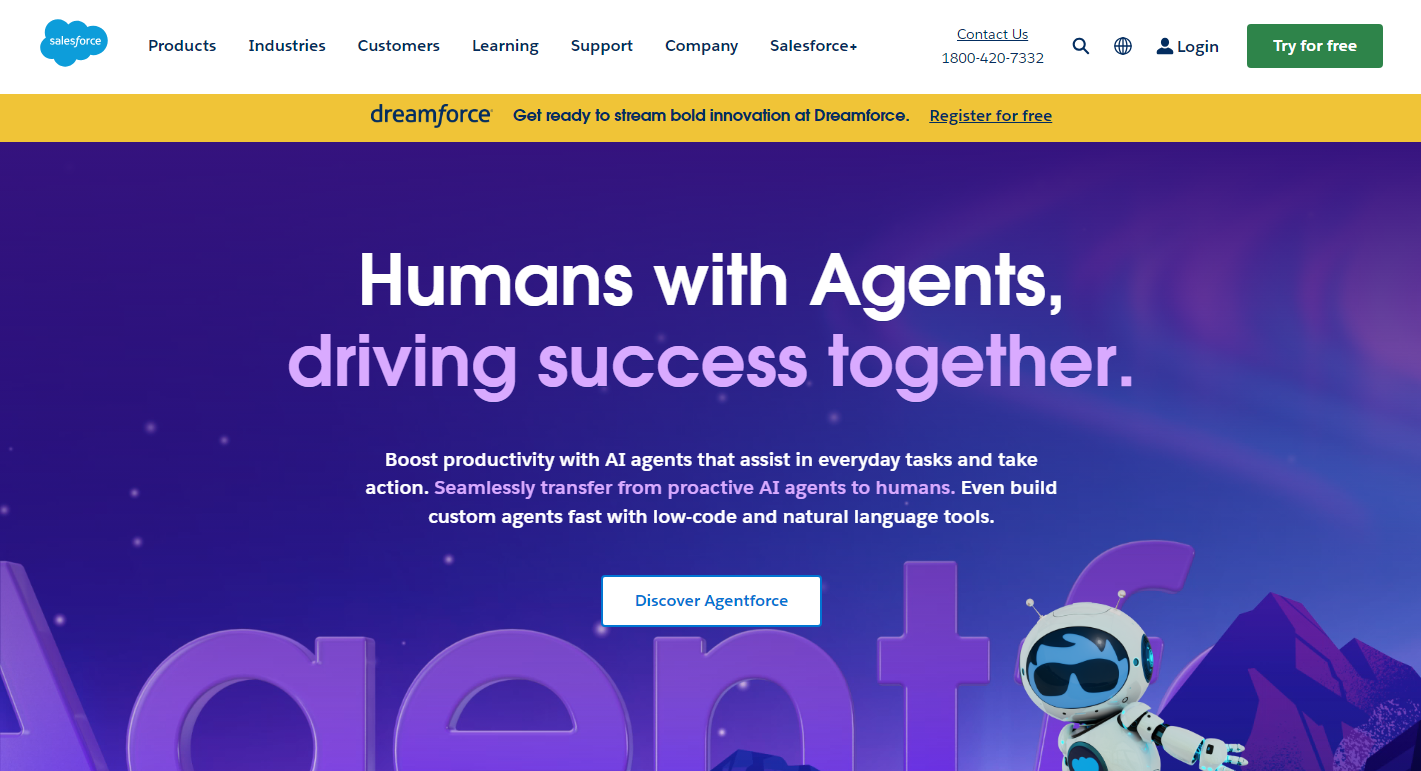
• Ideal For: Robust social media integration and extensive CRM requirements. Best for businesses needing a full-spectrum CRM solution.
• Key features include automated processes, social media monitoring, advanced analytics, and smooth connection with other sales and marketing platforms.
2. HubSpot CRM
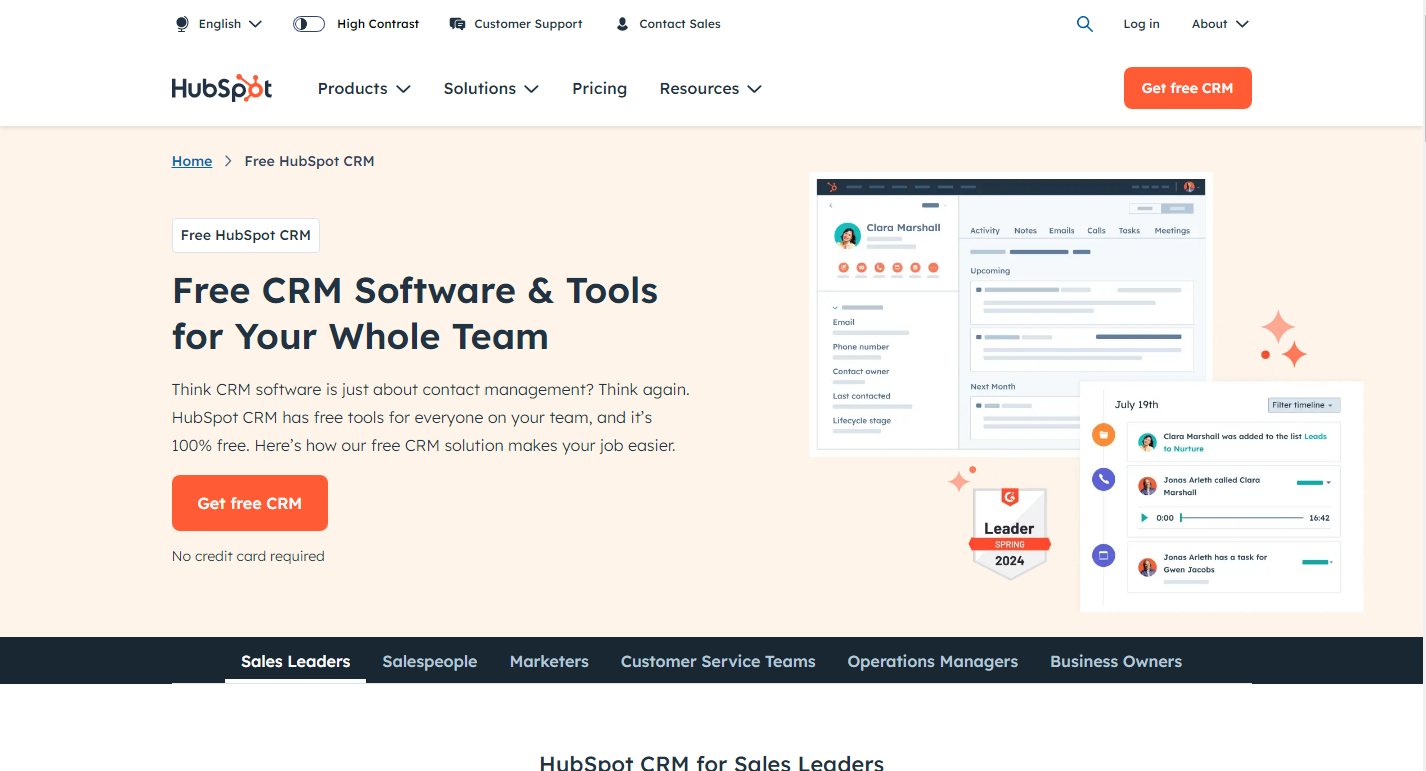
• Best For: Small to medium-sized companies looking for a comprehensive marketing and CRM solution.
• Essential features include lead generation, publication, interaction, social media monitoring, and customer support capabilities.
3. Hootsuite
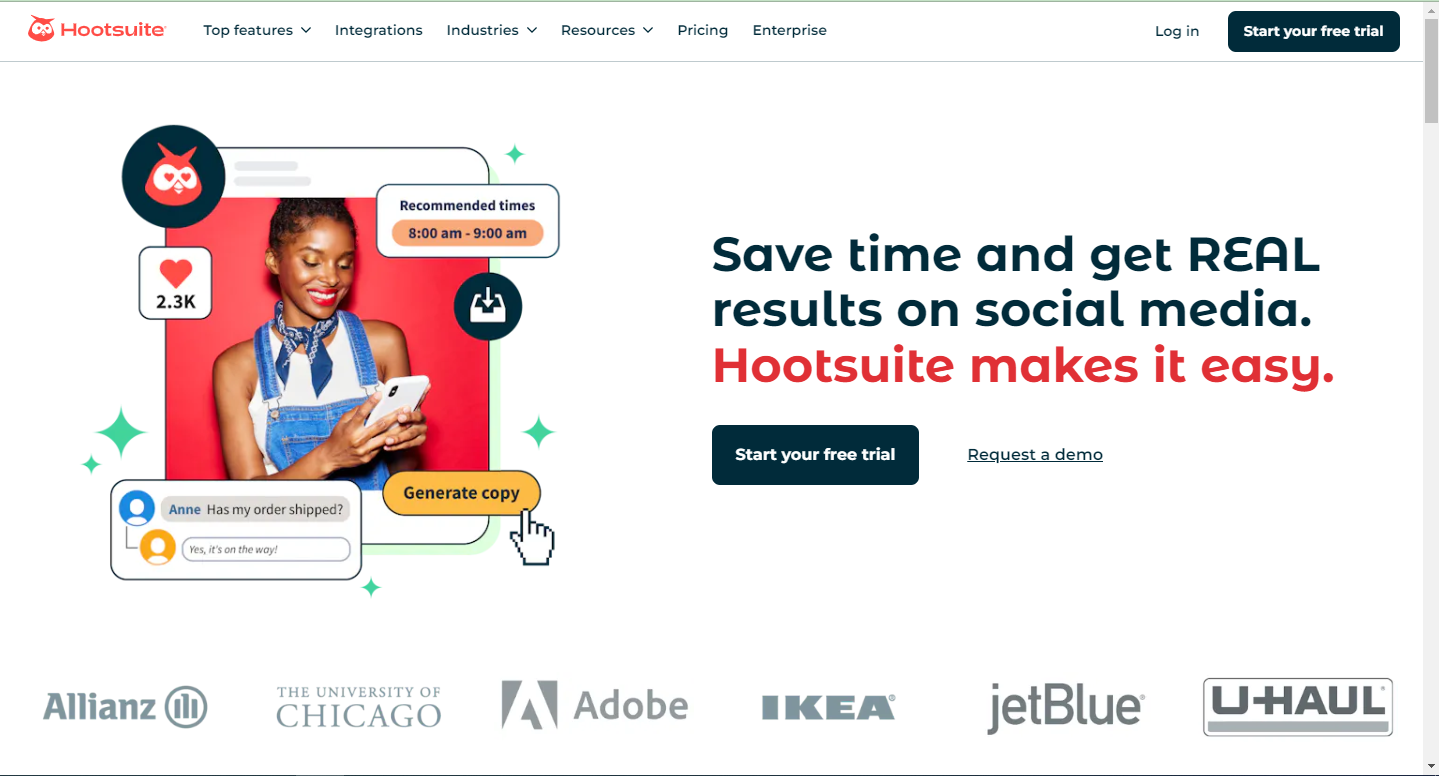
• Best For: Social media administration and tracking, particularly for companies with a large number of accounts.
• The key capabilities include analyzing statistics, scheduling content, and interacting with followers.
4. Sprout Social
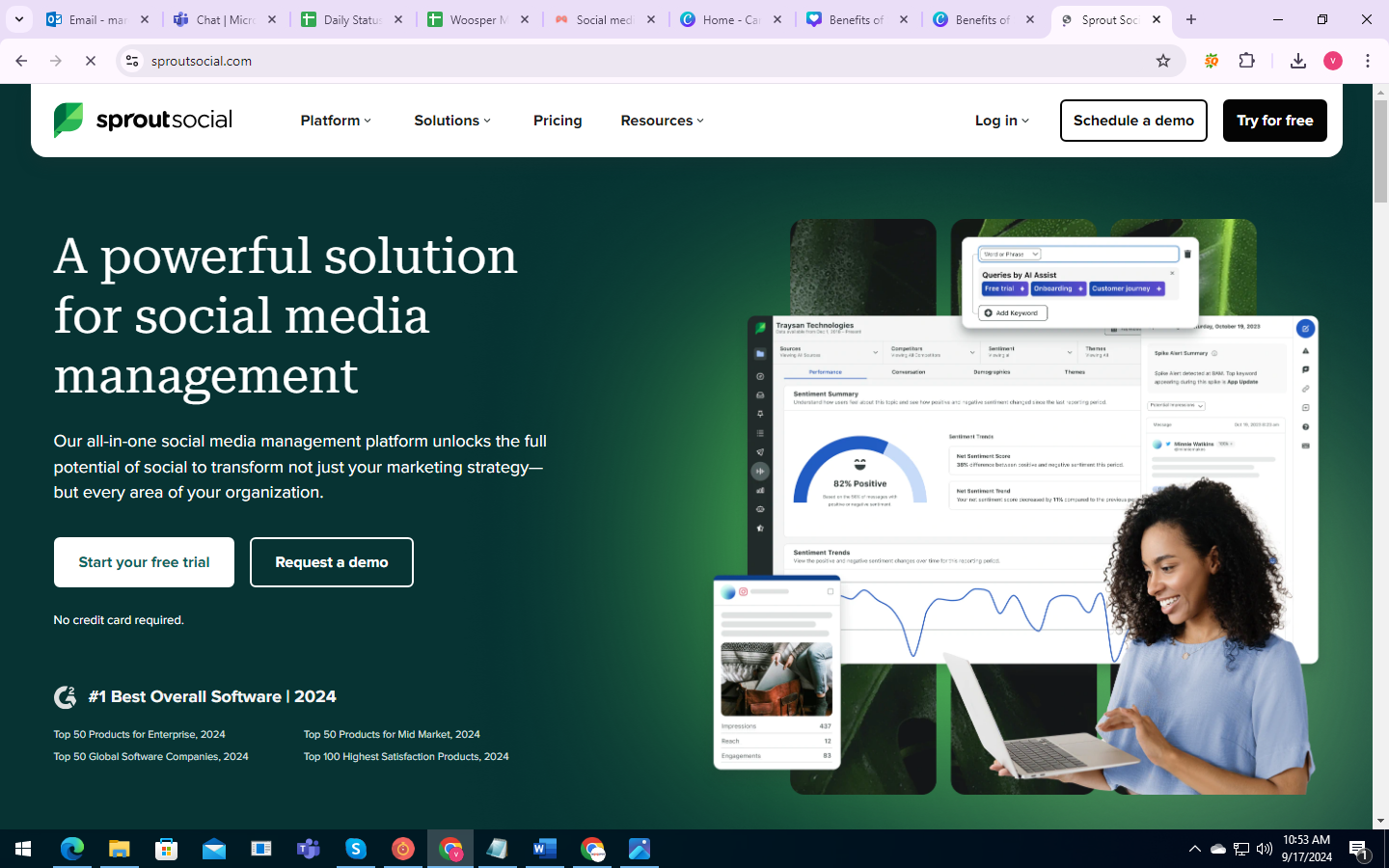
• It is best at providing advanced analytics and reporting, as well as customer care and engagement.
• Core capabilities include tools for team communication, mail management, and social listening.
5. Zoho Social
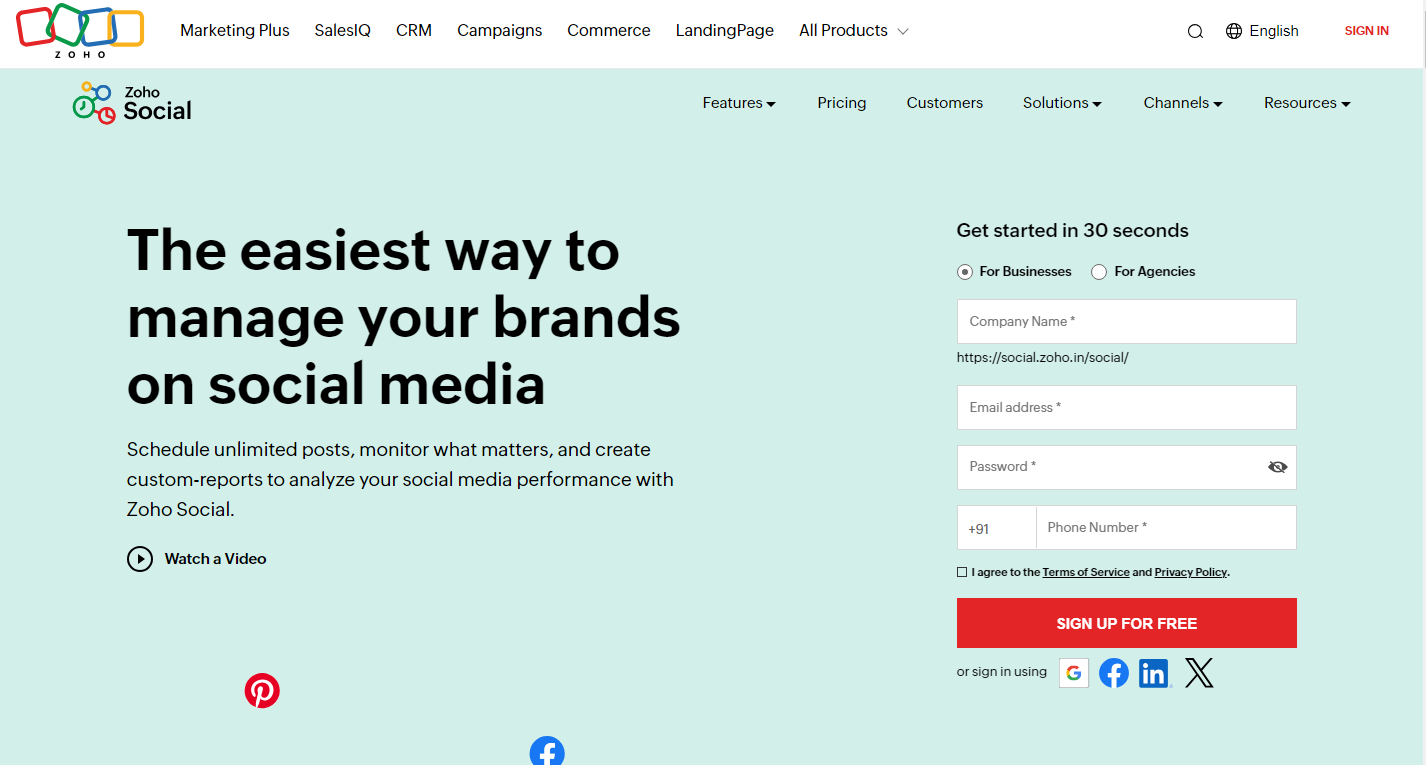
• Ideal for: Small companies looking for an affordable social media management solution.
• Significant features: Tools for social media involvement, scheduling, and monitoring.
Think about the needs of your company, your budget, and the size of your workforce when choosing a social CRM product. Additionally, search for solutions that easily integrate with your existing sales and marketing technological infrastructure.
Conclusion
In a nutshell, social CRM is more than just a trend. It is an innovative approach to customer relationship management that uses social media's potential. Businesses can use real-time social data to gain deeper insights into consumer behavior, increase engagement, and generate more personalized interactions. Whether you want to improve your marketing efforts, increase sales performance, or improve customer service, Social CRM provides the tools and methods you need.
Ready to elevate your customer interactions? Discover how Social CRM can transform your business— Consult with our experts today!
Subscribe to my newsletter
Read articles from Woosper directly inside your inbox. Subscribe to the newsletter, and don't miss out.
Written by

Woosper
Woosper
Woosper is a brand marketing firm specialising in the development and implementation of comprehensive marketing strategies for companies of all sizes. Our experienced marketing team collaborates closely with clients to determine their distinct brand identity and create targeted campaigns that drive engagement and lead generation.